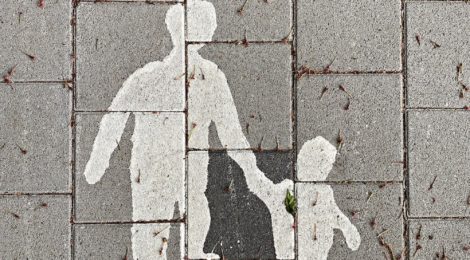
Breaking Free from a Narcissistic Parent
Narcissistic people deeply crave the approval of others. This desire stems from an extreme insecurity which makes them hypersensitive to criticism and unable to acknowledge their own flaws. These traits mean narcissistic people often lack empathy, are highly manipulative of others, and treat those who threaten their “perfect” self-image with cruelty.
Because of this, children of narcissistic parents suffer greatly. These children often fail to receive the emotional support they need from parents and endure emotional abuse. Narcissistic parents are ultimately more concerned with how the child impacts the parent’s image than the child themselves. Instead of prioritizing their child’s emotional wellbeing, they focus on maintaining their power over the child and ensuring the child is a “good reflection” of them.
In an interview with the Trauma and Mental Health Report (TMHR), Chelsea (name changed for anonymity) talks about the challenges she experienced with her narcissistic father:
“He really destroyed my mom and siblings’ sense of self-worth. We were always in need of improvement. He was never satisfied with just allowing us to be as we are. My mom and brothers got it the worst. He didn’t say much to me and my sisters because we were his ‘princesses’. But if we did anything to disrupt this image, then we would receive negativity too. It hurt. Deeply. Still does.”

According to clinical psychologist Ramani Durvasula, children of narcissistic parents are likely to be self-destructive as adults: anxious, self-critical, and unable to create good boundaries for themselves. This makes them more vulnerable to mental health challenges regarding their mood and regulation. They are also more likely to choose narcissistic romantic partners. Healing from this exposure is a very complicated process, and it can be challenging to know where to start. Chelsea explains:
“I developed many negative coping habits to deal with the pain he caused me. I started having panic attacks as a young teen because I felt so out of control and unlovable, unable to be understood by those closest to me.”
In an interview, Durvasula identified four steps to healing as an adult child of narcissistic parents.
First, learn about narcissism. Understanding your parent’s behaviour is both an essential step and a great place to start. Watching and reading about other people’s experiences can help you to feel less alone and guide you on the steps you need to take in your own healing process.
Second, practice radical acceptance. Radical acceptance is not about accepting and tolerating the flaws of your parents. It is about unlearning self-blame and seeing your parents for who they truly are without making excuses for them. Some ways to do this could include writing, talking to someone, or maybe even drawing about it. Acknowledge the ways that they hurt you in full, and accept that it is not your responsibility to help your parents improve. Durvasula explains:
“The odds of your parent changing are pretty close to zero, because they were a fully formed adult when you met them. If you set out trying change them, you’re going to die of exhaustion and disappointment. Instead, be the best version of you.”
Third, develop and nurture other social relationships. Find people that make you feel secure and validated, then build on these relationships to improve your support system. Durvasula also recommends being active in support groups or therapy that focuses on narcissistic abuse. By connecting to people who truly understand your perspective, you will have access to appropriate support. This will help you to cope with feelings of shame or isolation.

Finally, once you have learned about and made peace with the impact of this parent, decide how you’d like your relationship with them to look going forward. Remember to base your choice on who they are now, not who you think they could be in the future. Durvasula says:
“Recognize that your parent is an exquisitely limited human being. Be ready for all the disappointment that is inherent in this type of relationship, but know that it doesn’t mean you have to stop being a good person.”
If you choose to distance yourself, know that it’s valid to prioritize your wellbeing in this situation. Durvasula notes that distancing is ideally a slow, gradual process, and warns that these changes may affect your relationships with people still within the narcissist’s circle. Others close to the parent likely struggle with the same guilt that you do, but may not be at a point where they want to distance themselves from the narcissist:
“Narcissistic social circles are structured like a building. You can’t just take one brick—one brick can make a lot of other bricks fall.”
Healing as an adult can be a difficult process. But with the right support, it is possible.
– Promise Busulwa, Contributing Writer
Listen to the full interview with Ramani Durvasula here.
Image Credits:
Feature: Suzi Kim at Unsplash, Creative Commons
First: No-longer-here at Pixabay, Creative Commons
Second: Christina @ wocintechchat.com at Unsplash, Creative Commons



